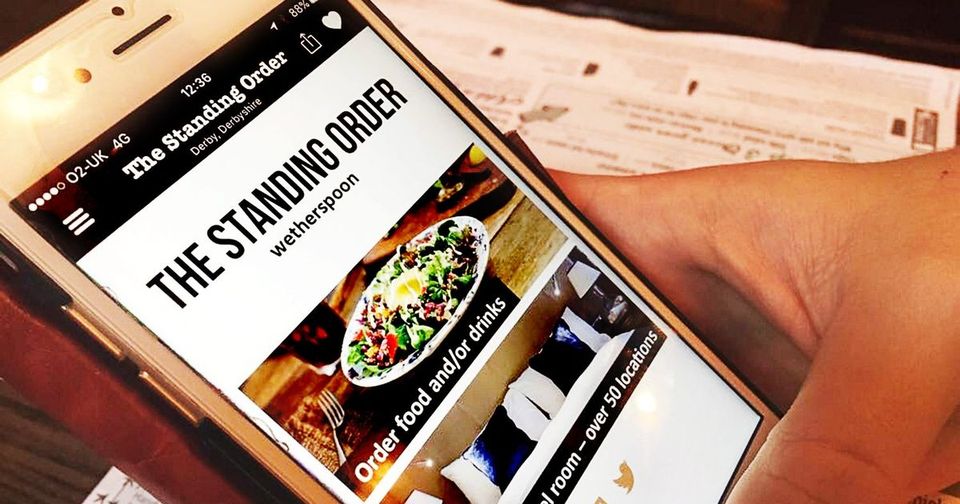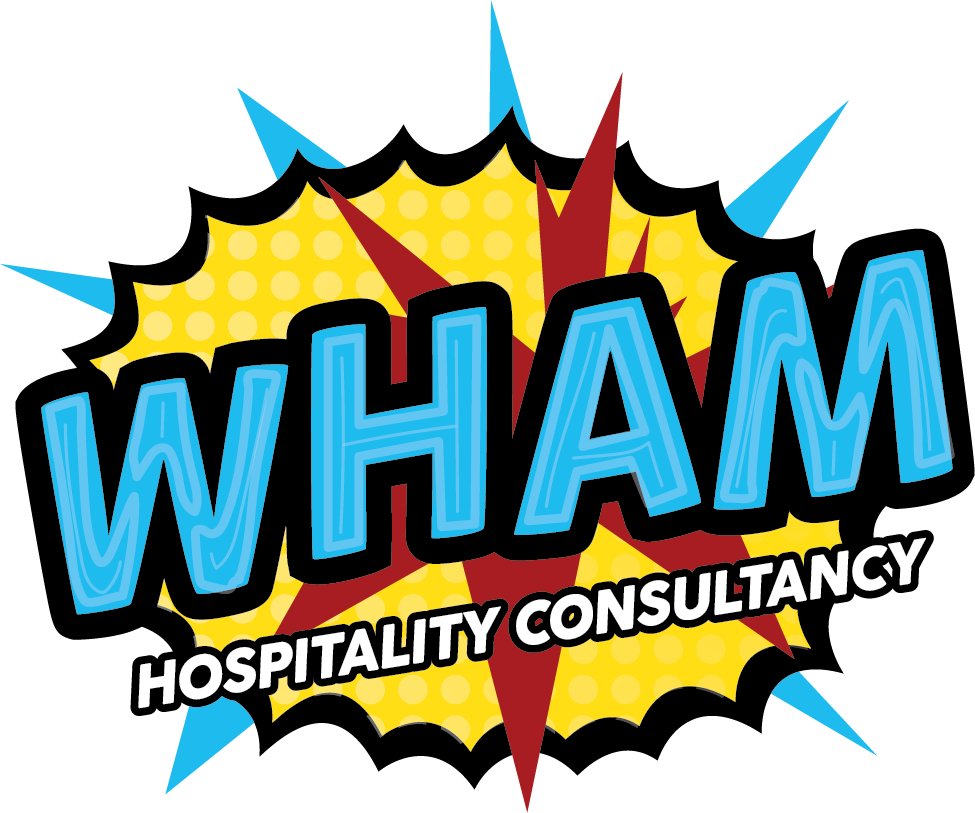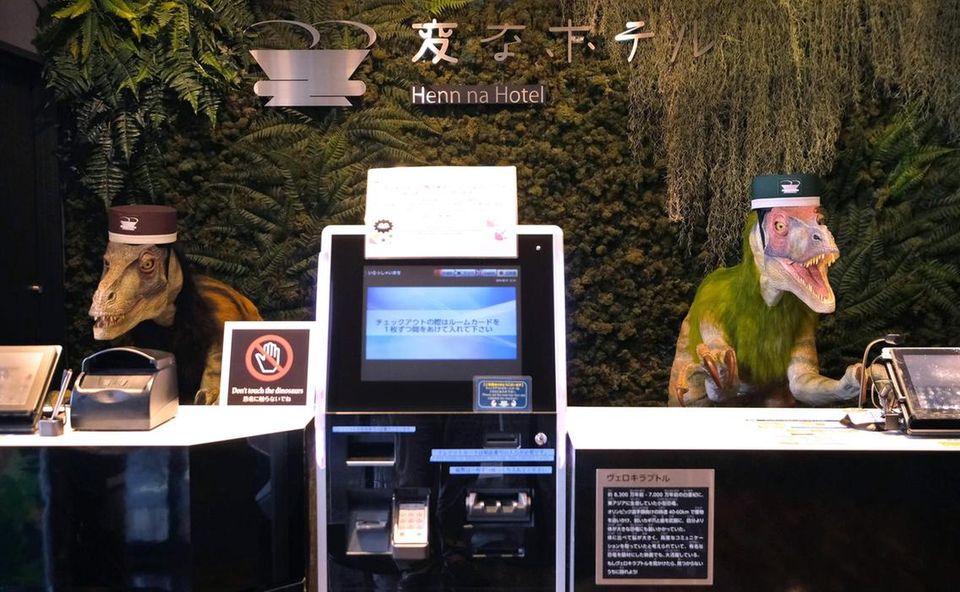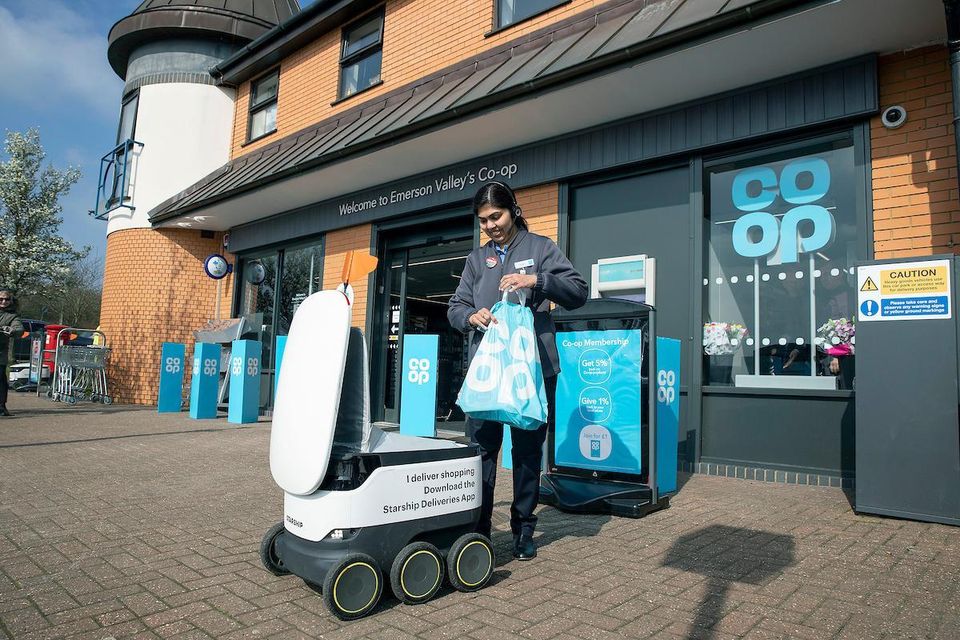The Future is Now
I know that advances in technology move at a breakneck pace. We all know advances in technology move at a breakneck pace. Perhaps knowing this and appreciating what that actually means are two different things however.
For those interested (of which that will probably be no-one!) I’ve recently moved my coffee shop loitering from Costa to Café Nero. No ulterior motive apart from I’ve found a liking for their hot chocolate. Earlier this week I downloaded and was registering for my Café Nero loyalty app when it asked me to input my bank card details. Next thing I know I’m showing the barista a QR code on my phone, it’s registered my loyalty purchase and it’s paid my bill, all in one quick and efficient operation.
Why this impressed me I don’t really know. After all, it’s
not like this is something new – but on this occasion it was new to me, 1st
time I’ve paid this way, and the barista tells me that next time I can use the
app to order my drink ahead of time and simply turn up to collect it. Magic.
Magic
Well OK maybe not magic. I recall me arranging to meet my oldest son at a Wetherspoons a few months back. I was with other members of the family who wanted to order before he showed up as he was running late. ‘No problem’ he messages me. ‘Let me know the table number and I’ll order from the app on my way in and can eat with the rest of you’. Magic.
OK, not magic, simply an example of the pace that technology is moving within hospitality; you can order your food from phone on the bus and have it ready when you arrive at your destination. Progressive.
A couple of weeks back I was talking to George Wright of SLU
Marketing & Consultancy. George was filling me in on the latest
innovations he was working with and the conversation moved to technology within
hotels, or more specifically those operators moving away from having telephones in
their hotel rooms preferring a tablet based system and software instead to take care of
dinner reservations, spa treatment bookings, housekeeping enquiries, even
selling advertising space to local attractions and booking your tickets through
the hotel tablet.

What else?
After diving down the fox hole a little more it appears that in hotels the technological world is their oyster:
· Remember actual hotel keys? And then it was a seen outdated if you didn’t move to key-cards? Well now how about finger-print or facial recognition to open your hotel door.
· More hotels are moving to self-check-in kiosks, some even have the availability for you to check-in via an app up to a day in advance of your reservation and for your room key to be a virtual key on your phone.
· Could the vaunted hotel concierge be a thing of the past? The Hilton has their robot Connie moving in on that hallowed staple of a hotel. Meet Connie HERE.
If all of this seems a little too progressive for some then the Henn-na Hotel in Nagasaki say to that ‘hold my beer’. The Henn-na is the first hotel in the world to be staffed by robots. Throughout the hotel, robots are deployed to provide information, front desk services, storage services, as well as check-in and check-out services with technology including voice and facial recognition.
Interested? Take a look HERE.
Of course, it’s not just hotels that are marching into the future unabated. Many years ago, if you ran a pub or a bar you were cutting edge when you moved your jukebox to an integrated music system, or the fruit machine found a partner in the touch screen quiz machine partnered next to it. Nowadays, during your visit to your local you’re more likely to connect with a cutting edge CRM system (we’re not even going to discuss WiFi – it’s a must – that is all), and the music system is now part of a bigger mood-management programme automating everything from heating to lighting levels based off real-time atmospheric readings.
What next?
The traditional printed menus may be next on the chopping block, replaced with tablets allowing operators to cut down on reprint costs, make product alterations at the push of a button, introduce dynamic pricing to maximise trading pattern opportunities or else to rotate the entire menu offering per day part.
Whether you own a full-blown restaurant or a causal eatery, letting your guests know that their table is available via text or app notification has already meant no waiting in queues for some venue’s guests. Your guests might even have placed their order in advance of sitting down at their table, from the back seat of the taxi on the trip in, or perhaps via a chat-bot who fielded their enquiry online.
Away from the customer facing technological initiatives, operators are benefitting more and more from the introduction of AI into the operational running of their businesses. Software that takes the ‘human error’ out of the ordering process is available using historical sales to predictive order for restaurants as they look to minimise food waste aiding both profitability and sustainability. What would Chef think of that?
What about the people?
Where the debate around technological advances (and how they can be used) will forever be centred will of course revolve around how much each individual business values the human element of face-to-face guest interaction and service (a debate I myself had very recently with a client) and in that, each individual operator will have their own point of view. How much do you put a value on human interaction within your style of business verses say the labour efficiency of automation for example?
I recently visited a multi-plex cinema and the only human interaction I had during my entire visit was someone handing my (pre-ordered) food to me from a service collection point. Did that lack of face-to-face interaction bother me? Not particularly. I was there to witness a summer blockbuster on the big screen and so to that end ‘mission-accomplished’ whether I spoke to a member of the Team there or not. Would I like to pay to stay in a premium hotel and not have any human interaction during my stay? I’m not sure, but I know I’m open enough to try it and see.
That willingness of consumers to try something new continues to
be the driving force behind the evolution of technology within the sector. Look
no further than the growth of delivery within the food hospitality sector. How
many of us haven’t logged onto an app, clicked a menu, chose our food, paid for it through the site and had it turn
up to our door where the only human interaction is the handing over of the food
parcel and perhaps an ‘enjoy your food’; and perhaps even that will come to an
end. Take the trial by Starship Technologies in Milton Keynes where your Co-op
food groceries order is delivered via robot.
What?!? It’s outdated already?
The point is that the technological advances will continue to roll-out and probably quicker than we recognise them doing so. In the time it’s taken me to write this piece it wouldn’t surprise me if some piece of technology I’ve referenced is already out-dated. Whether your view is for or against this style of evolution within the sector, what cannot be denied are the opportunities they present to make businesses more efficient, and dare I say in some cases, more interesting?
Hospitality to me is, and always will be, about the people who deliver it - that face-to-face guest interaction. The challenge of finding the balance between emerging technologies verses the human factor in each business is only just beginning for many operators. With the technological advances available to us now, and new advancements coming down the pipeline on what feels like a weekly occurrence, I find this topic interesting, exciting and I can’t wait to see how quickly this article dates itself in years to come.
See you at the bar….
Mark



